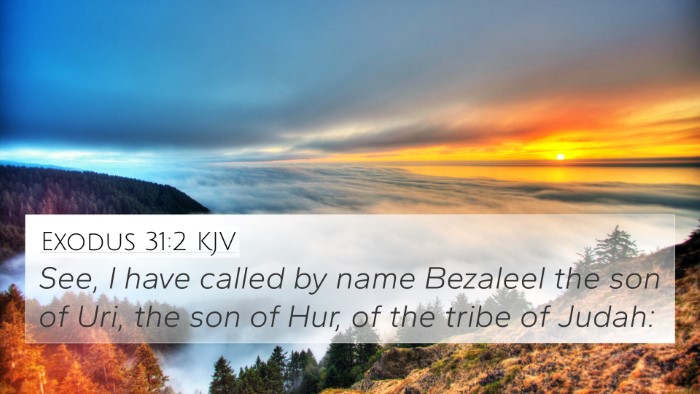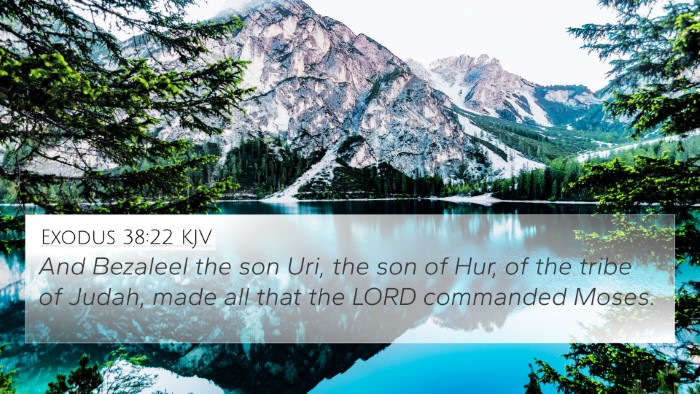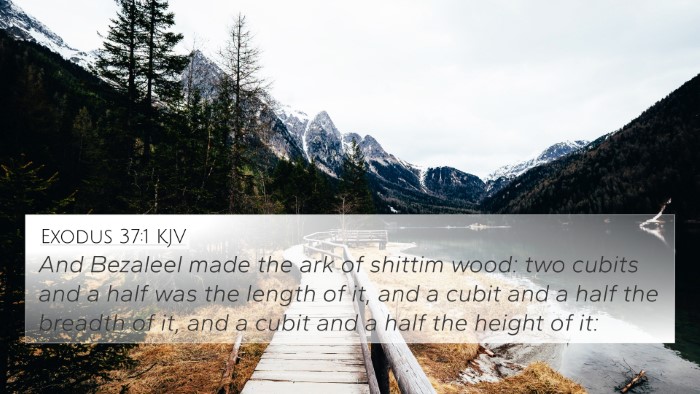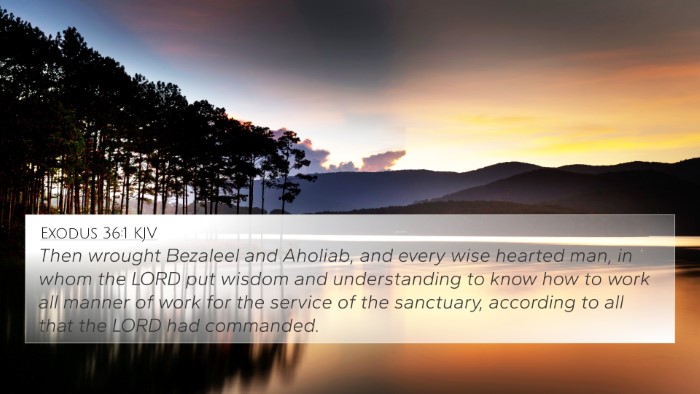Understanding 1 Chronicles 2:20
Verse Reference: 1 Chronicles 2:20
Verse Text: "And Hur, the firstborn of Ephrathah, the father of Bethlehem." (1 Chronicles 2:20, KJV)
This verse highlights significant genealogical information regarding Hur, a key figure in the lineage associated with Bethlehem. In the historical context of the Israelites, genealogy played a crucial role in defining tribal and familial connections.
Summary and Insights
From insights derived from public domain commentaries:
- Matthew Henry: Matthew Henry emphasizes the importance of understanding the genealogies in 1 Chronicles as a way to highlight God's faithfulness to His covenant people. He notes that genealogies not only record ancestry but also illustrate the unfolding plan of God through different generations.
- Albert Barnes: Barnes points out that Hur's mention as the father of Bethlehem establishes a historical connection to one of the bible’s most significant locations, tying Jesus’ lineage to this town. This affiliation signifies the fulfillment of God's promises to His people.
- Adam Clarke: Clarke expands on the significance of the term "firstborn." He explains that being the firstborn carries with it certain privileges and responsibilities, reflecting the central role Hur and his descendants played in the biblical narrative.
Thematic Connections in Scripture
1 Chronicles 2:20 can be understood through various thematic connections with other Bible verses that illuminate the broader narrative of God's covenant and the significance of Bethlehem.
- Cross-Reference 1: Micah 5:2 - This prophecy regarding the birthplace of Christ establishes Bethlehem's importance in messianic lineage.
- Cross-Reference 2: Matthew 1:6 - Highlights the genealogy of Jesus, referencing King David, who was also connected to Bethlehem.
- Cross-Reference 3: Luke 2:4-7 - The nativity narrative in Luke confirms God's promise that Jesus would be born in Bethlehem.
- Cross-Reference 4: Ruth 1:22 - The story of Ruth introduces the heritage of King David and traces back the significance of Bethlehem.
- Cross-Reference 5: John 7:42 - Clarifies the expectation of the Messiah to come from Bethlehem, reinforcing its prophetic significance.
- Cross-Reference 6: Genesis 35:19 - Establishes the location of Bethlehem as "Ephrath" in the earlier narrative of Genesis, maintaining continuity in the biblical account.
- Cross-Reference 7: 1 Samuel 16:1 - Discusses God's selection of David from Bethlehem, further emphasizing this town's historical significance.
Applications and Reflections
This verse, while brief, offers a profound opportunity for reflection on God's consistent faithfulness and the importance of lineage in biblical texts. Understanding the connections between various scriptures provides insight into how God's plan unfolds through history. Through the lens of 1 Chronicles 2:20, one can appreciate the depth of God's story as it leads to the birth of Christ in Bethlehem.
Tools for Bible Cross-Referencing
For those interested in further exploring the connections between Bible verses, various tools and methods are available:
- Use a Bible concordance to find related verses.
- Employ a Bible cross-reference guide to identify thematic links.
- Experiment with cross-reference Bible study methods to enhance understanding.
- Consult comprehensive Bible cross-reference materials for deeper theological insights.
- Explore Bible chain references for related doctrines or teachings.
Conclusion
1 Chronicles 2:20 serves not only as a historical note but also as a gateway to understanding the divine orchestration of events leading to the arrival of Jesus. By examining cross-references and connections, readers gain a fuller perspective of how each part of Scripture interconnects to reveal God’s overarching narrative.
Keywords: Bible verse cross-references, connections between Bible verses, linking Bible scriptures, comparative Bible verse analysis, thematic Bible verse connections, inter-Biblical dialogue, comprehensive Bible cross-reference materials.







